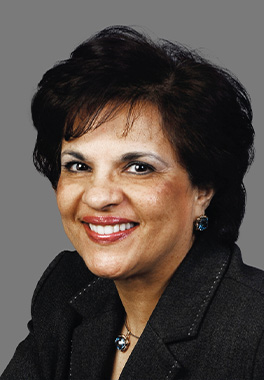
Question Period - Ministry of Immigration, Refugees and Citizenship
Asylum for Yazidi Girls
May 2, 2017
The Honorable Senator Mobina S. B. Jaffer:
Minister, first of all, I want to welcome you to the Senate of Canada. As a fellow African, I have to tell you that your presence here, in my place of work, gives me immense pride.
I have often, minister, spoken about the Yazidi girls, and I first want to compliment you for the girls and Yazidi families that you have brought here. Minister, the thing that has really touched me is that you didn't just bring the girls; you brought their families. I cannot thank you enough.
For over a year I have been working with women in Vancouver who are part of the Rose Campaign and are at the forefront of trying to bring these women here. We met on Saturday together and this is the question that they are asking. I will try to ask my question in their words.
As you know, minister, 5,200 girls were enslaved; 3,000 are still enslaved. Today's news from the UN is that they have just rescued 63.
The Rose Campaign's question to you is this: Exactly how many girls have been brought to Canada, and what is being done with other like-minded countries like Norway, Denmark and Sweden? What is being done to rescue the other girls? What asylum will those girls be given and in which countries?
Hon. Ahmed D. Hussen, P.C., M.P., Minister of Immigration, Refugees and Citizenship: Thank you very much, Senator Jaffer, for that question. Before I begin, I'd like to thank you for the best wishes that you've sent my way and also to acknowledge the long friendship and working relationship that we've had and your generosity to me as a member of Parliament when I first arrived here in 2015.
The ongoing operation that we've had to bring all survivors of Daesh here, but predominantly Yazidi women and girls, has been one of the proudest things I've been able to accomplish as a minister. That program has been very carefully planned from the get-go. We relied on Germany to design the operation, because Germany was ahead of us in terms of getting over 1,000 Yazidi women and girls out of that volatile region and into safety in Germany. We sat down and consulted with the Germans and they shared with us their experiences. We put together our operation and designed it with that in mind.
Secondly, one of the things we learned very quickly is that this is an extremely vulnerable group that has been particularly traumatized, more than even other vulnerable refugees. So we wanted to make sure that we paced the arrivals and did it in stages to allow the local communities where they would settle, all across Canada, to have these intense supports, because these individuals have been through a lot of trauma.
I'm proud to say that our plan worked flawlessly. So far we've brought over 450 Yazidi women and girls and even young boys, because we found out through the operation that ISIS was targeting young boys for enslavement and turning them into child soldiers. We've worked closely with municipalities, with provinces and with the Yazidi community in Canada to make sure there are intense wraparound supports to address the psychological, physical as well as other needs that this particularly vulnerable group has.
We have a target of bringing into Canada 1,200 Yazidi women and girls, but other survivors of Daesh as well, by the end of 2017. We've also encouraged private sponsors of refugees to prioritize the Yazidi women and girls when they can. We worked closely with the UNHCR and others to make sure we do what we can to help the survivors of Daesh.
In terms of the friendly countries that can do more, we've been playing a leadership role. I've been travelling across the world to share our private sponsorship model for refugees, which is so needed in the world today. A lot of countries have been coming to Canada and saying, "We love your PSR model. Can you help us technically?" We've been doing that, and those allocations for PSRs across the U.K., Germany and Latin American countries will include spaces for Yazidi women and girls.

